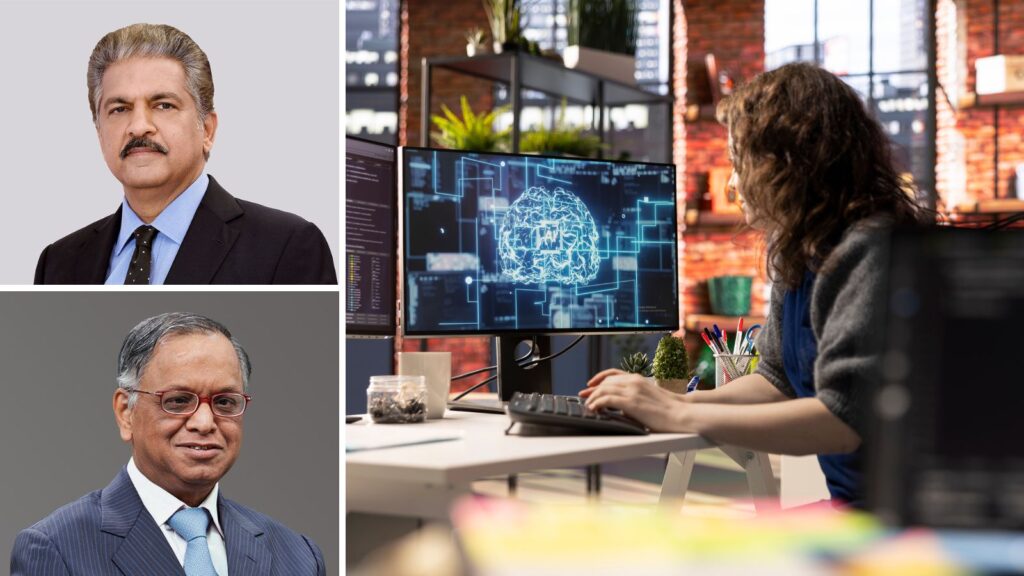970x125
Artificial Intelligence (AI) is one of the most talked-about technological shifts in recent years. While many are hopeful and see the rapid pace of AI developments as beneficial for humanity, many continue to fear job displacement and uncertainty caused by the disruption.
970x125
Even as AI continues to make rapid strides across industries, several leaders have shared their thoughts on AI, especially how it is going to affect our lives, jobs, and the way the world conducts business. Advocates of AI have been praising it as a powerful tool that could redefine productivity and the potential new opportunities that it would create for companies and professionals and the potential it can unlock in scientific discovery.
Sam Altman, Elon Musk, Mark Zuckerberg, Bill Gates, etc., have been shaping the global conversations around AI. Indian tech leaders, too, have been chiming in with their unique perspectives. These voices from the Indian tech sector offer some insights into how companies are embracing AI.
Building resilience along with AI
Chairperson of the Mahindra Group, Anand Mahindra, who is known for his unique perspectives on the world, recently talked about embracing AI during his speech at IIT Bombay. He emphasised that there is a need for students and professionals to build resilience and emotional intelligence along with technical excellence.
“AI can write code, but it can’t write character,” Mahindra said, urging students to focus not only on technical excellence but also on building integrity, resilience, and emotional intelligence – traits he believes will define true leadership in the next decade.
“Technology is a tool. But it’s curiosity and character that create visionaries,” he added.
The problem is purely economic
The CEO of Zoho Corporation, Sridhar Vembu, recently took to his X (formerly Twitter) account to share his unique view on AI and jobs.
Story continues below this ad
“Hypothetically, if all software development were to be automated – I want to emphasise that we are nowhere close to that goal – and all software engineers such as myself are out of work, it is not like human beings will have nothing to do,” he said, dismissing the popularly held belief that AI will take over jobs.
On the subject of AI and jobs: Hypothetically, if all software development were to be automated – I want to emphasize that we are _nowhere_ close to that goal – and all software engineers such as myself are out of work, it is not like human beings will have nothing to do.
The…
— Sridhar Vembu (@svembu) June 7, 2025
https://platform.twitter.com/widgets.js
According to Vembu, if robots and AI were to automate all production work, humans could do the remaining work, such as taking care of children.
Calling it an economic challenge, Vembu asked that if robots and AI automated everything, how will those without steady incomes be able to afford what is being produced? The CEO also said that automation may also lead to a drop in the price of goods and services, which may sound good at first but would be a concern later, mainly owing to access.
AI can never be conscious
Bhavish Aggarwal, CEO of Ola, believes that if consciousness can be described, then it can be codified into digital bits and consumed by AI. In his thought-provoking tweet, he wrote, “If consciousness can only be experienced and not described, then AI can never be conscious,” prompting his followers to share their views.
 Screengrab of Aggarwal’s tweet. (Image: X/Bhavish Aggarwal)
Screengrab of Aggarwal’s tweet. (Image: X/Bhavish Aggarwal)
Later in a blog post by Ola, Aggarwal elaborated on his thoughts. Bhavish Aggarwal, who also founded the AI startup Krutrim, has been a strong advocate of India becoming a global AI hub. In one of his tweets about updates to Krutrim, Aggrawal said that “India cannot be left behind in AI.”
Story continues below this ad
They will solve bigger problems.
On a similar note, NR Narayana Murthy, co-founder of Infosys, said that the fear of people losing jobs was not right. “This whole fear that technology will take away jobs is not right. It will create a different kind of job. Everybody said when computers came to the banking sector, ‘No, no, no, jobs will go away.’ No, jobs have multiplied by a factor of 40 to 50 in the banking sector,” Murthy said in a recent interview.
According to him, what will happen in the future is that programmers and analysts will become smarter in defining better and more complex requirements.
Murthy firmly believes that there will be more jobs. To support his argument, he shared the example of the banking sector’s transformation in the 1970s when technological advancement created more than destroyed employment opportunities. He explained that when computers were introduced to the banking sector, there was a fear of job displacement. However, jobs have multiplied by a factor of 40 to 50 in the banking sector.
The answer is not to block change; the answer is to skill up.
“The change doesn’t stop for anyone; you either ride the wave or get drowned by it,” said Arundhati Bhattacharya the CEO of Salesforce, while discussing how AI may impact jobs.
Story continues below this ad
“Just like the internet changed the world, artificial intelligence – or, as some prefer, augmented intelligence – is poised to do the same. It enhances and deepens the intelligence we already possess. It will fundamentally change how we work. Yes, there will be downsides, but if we use this tool wisely, it can greatly improve our lives and lifestyles,” she said.
The above views of tech leaders show how Indians are adapting to this new era of innovation. The CEOs acknowledged that while AI will undoubtedly automate some tasks, it also creates new opportunities. Many of them emphasised the importance of reskilling and upskilling the workforce to prepare for a future where humans and AI will work together, a trend they see as crucial for India’s economic growth.
970x125

